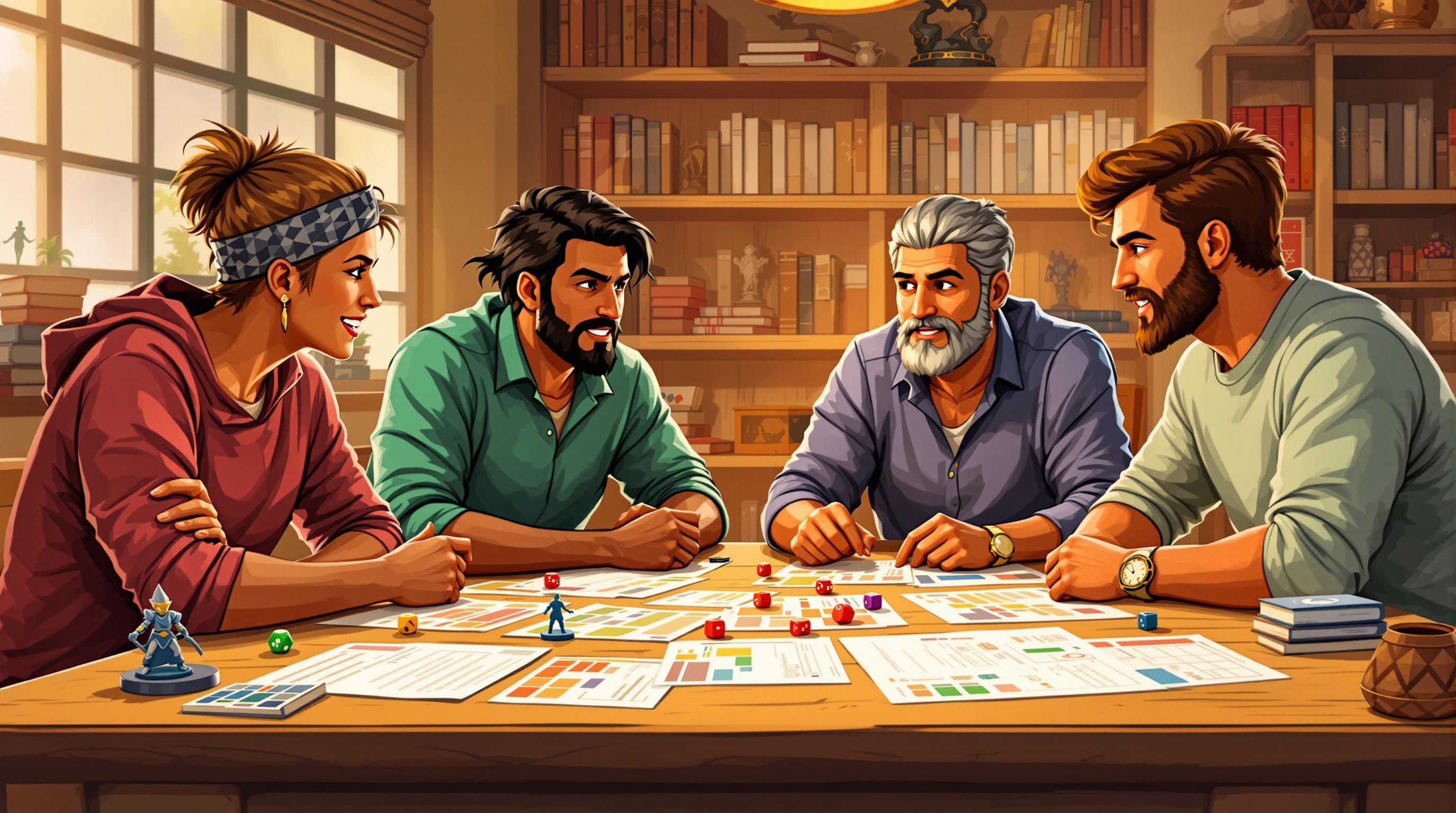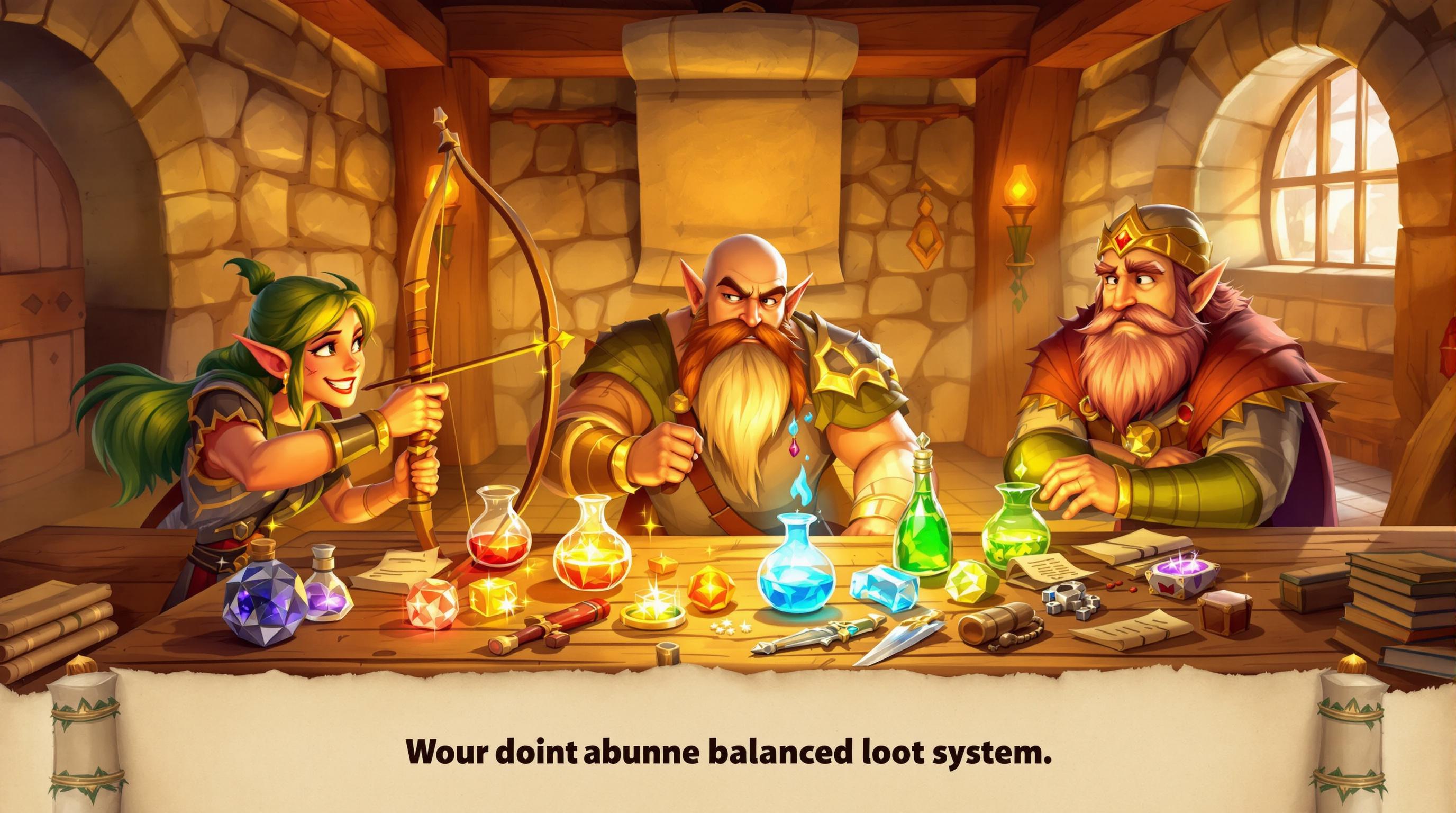- Pathfinder 2nd Edition: Offers tactical gameplay with deep character customization. Its three-action system and immersive world-building make it ideal for players who enjoy strategy, but it has a steeper learning curve.
- Dungeon World: Focuses on collaborative storytelling with simple mechanics. Quick to set up and perfect for groups prioritizing creativity over complex rules.
- Fate Core System: A highly flexible system that works across genres. It emphasizes storytelling and character-driven gameplay but may feel abstract for beginners.
Quick Comparison
| Game System | Strengths | Weaknesses |
|---|---|---|
| Pathfinder 2nd Edition | Tactical depth, rich world-building | Complex rules, steep learning curve |
| Dungeon World | Story-focused, quick to start | Less tactical depth, relies on GM improv |
| Fate Core System | Flexible genres, strong narrative focus | Abstract mechanics, fewer pre-made resources |
Choose based on your group’s preferences for combat, storytelling, and complexity. For even simpler options, consider games like Fate Accelerated or Honey Heist.
1. Pathfinder 2nd Edition
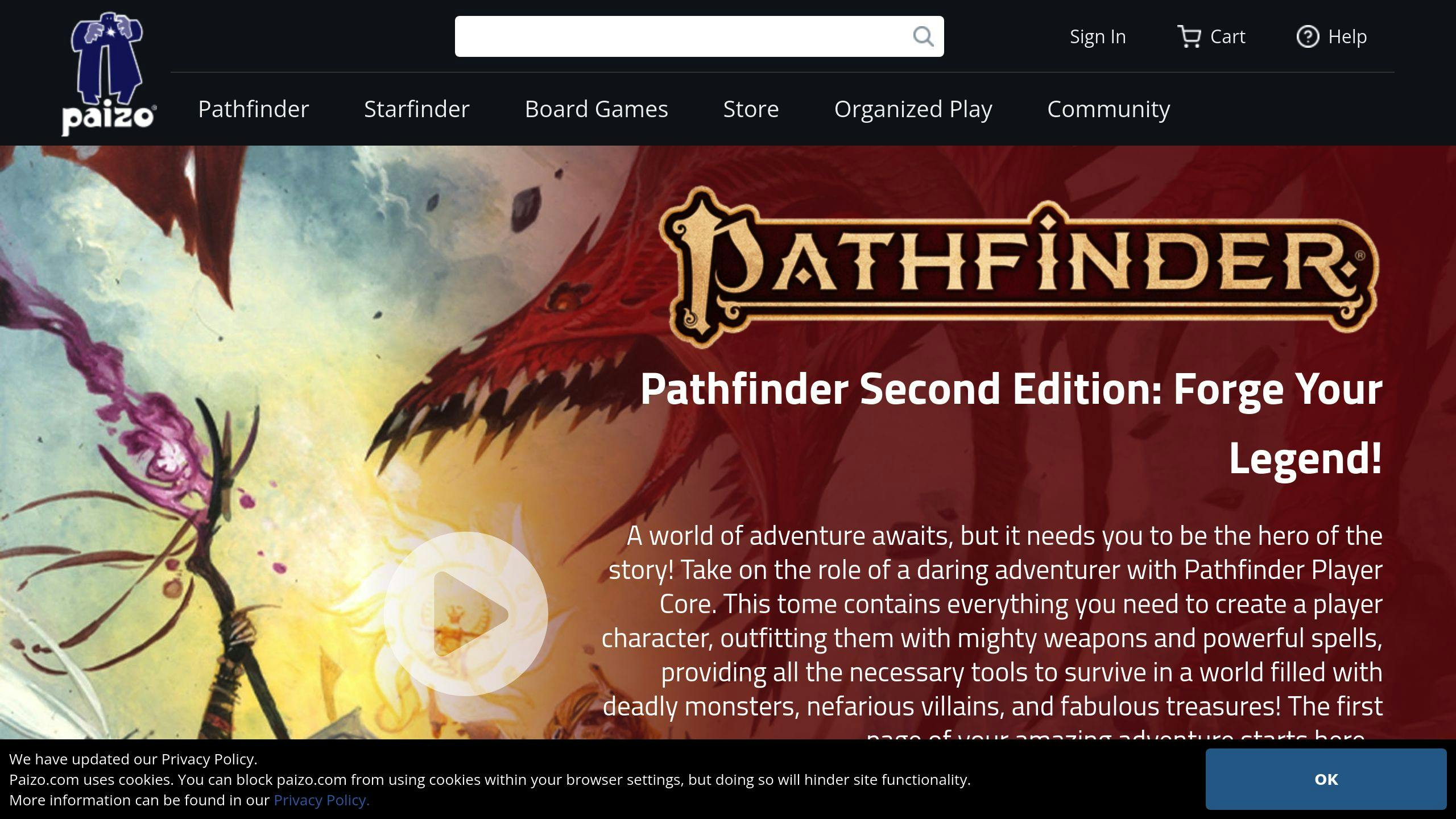
Game Mechanics
Pathfinder 2nd Edition introduces the three-action system, allowing players to mix and match moves, attacks, or abilities during their turn. This setup adds tactical depth while keeping gameplay straightforward.
| Core Mechanic Features | Description |
|---|---|
| Action System | Players get three actions per turn |
| Combat Style | Grid-based, tactical combat |
| Character Options | Highly customizable |
| Rule Complexity | More intricate than D&D 5E |
Character Creation and Accessibility
Pathfinder 2E provides step-by-step guides and pre-built archetypes to help beginners navigate its detailed character creation process. While it offers more customization than D&D 5E, the game’s active online community and comprehensive resources help ease the learning curve for new players.
Storytelling and World
Set in the richly detailed world of Golarion, Pathfinder 2E immerses players in diverse cultures and environments. The game emphasizes meaningful player choices that directly influence their adventures, supported by a wealth of supplemental guides to deepen the narrative experience.
Strategic Appeal
"Pathfinder 2nd Edition is a game that rewards strategy and creativity, with a depth of rules that will appeal to experienced players."
Pathfinder 2E stands out for its tactical gameplay and extensive character-building options, making it a great choice for those who enjoy strategic decision-making. New players can start with the basics and gradually explore the more advanced mechanics.
For those looking for a more improvisational and narrative-focused experience, Dungeon World provides a compelling alternative.
2. Dungeon World
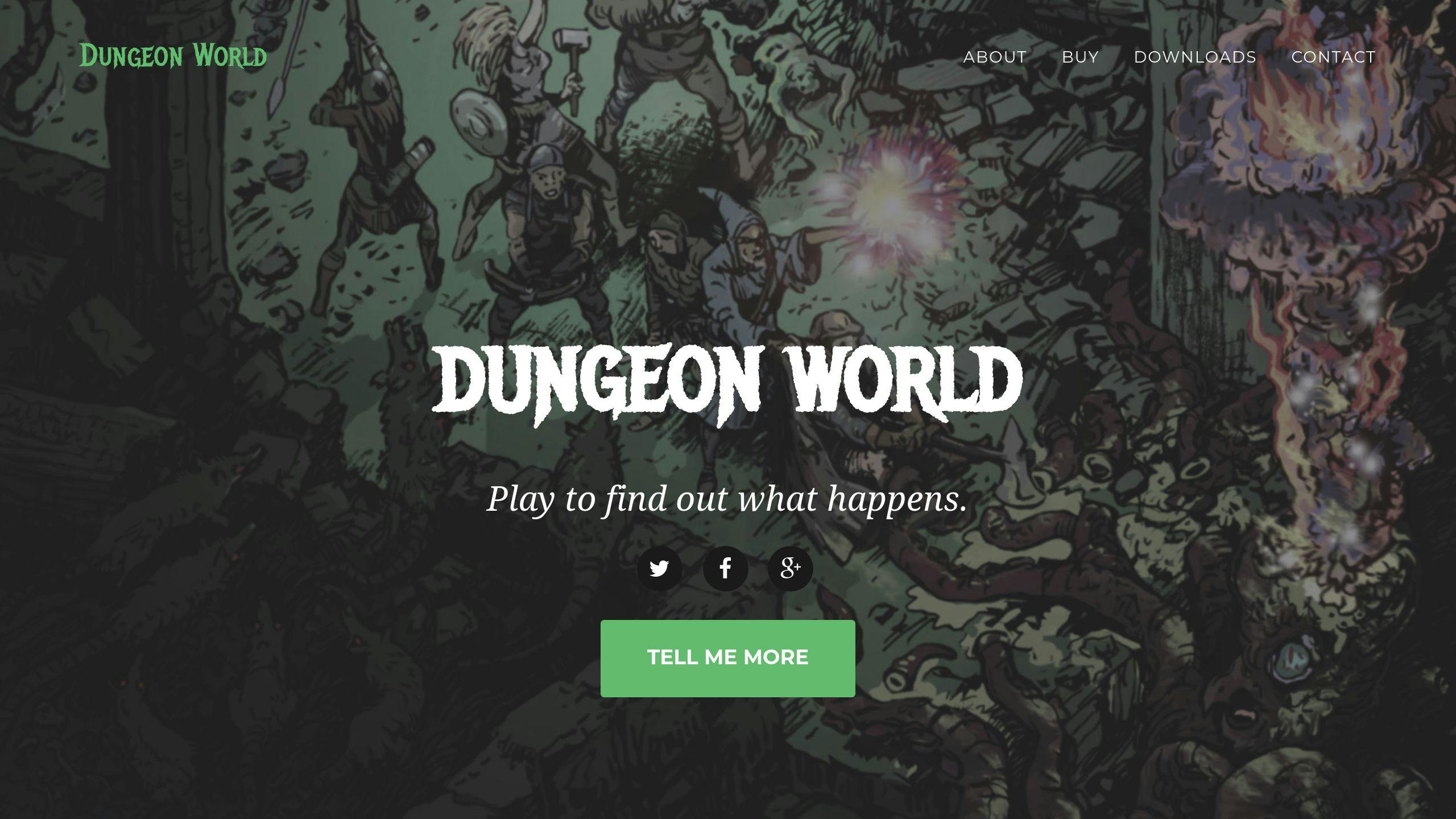
Game Mechanics
Dungeon World operates on a 'moves' system, where player actions trigger specific mechanics. These include Basic Moves - actions anyone can take - and Playbook Moves, which are unique to each character. The system is built around a simple 2d6 roll, with outcomes that are easy to interpret. GMs are guided by clear principles to keep the game running smoothly.
| Core System Elements | Description |
|---|---|
| Basic Moves | Universal actions available to all characters |
| Playbook Moves | Unique abilities tied to a character's playbook |
| GM Principles | Rules and advice for running the game |
| Difficulty Scale | Outcomes determined by a 2d6 roll system |
Quick and Easy Character Creation
Creating a character in Dungeon World is fast and straightforward. Players select a playbook, make a few choices, and they're ready to go - often in just 15–30 minutes.
Storytelling at the Core
Dungeon World is designed with collaborative storytelling in mind. The GM helps guide the narrative while players drive the story forward through their decisions and actions. This makes it perfect for groups who value creativity and shared storytelling over rigid mechanics.
"Dungeon World is a game that's all about telling a story together. It's not about winning or losing, it's about creating a narrative that's fun and engaging for everyone at the table." - Sage LaTorra, Co-creator of Dungeon World [1]
Accessible for Beginners
The game’s flexible rules and focus on natural, conversational descriptions make it an excellent choice for new players. It's easy to pick up and play, even for those unfamiliar with tabletop RPGs.
If you're looking for another system that balances structure with limitless storytelling opportunities, you might also enjoy exploring the Fate Core System.
3. Fate Core System
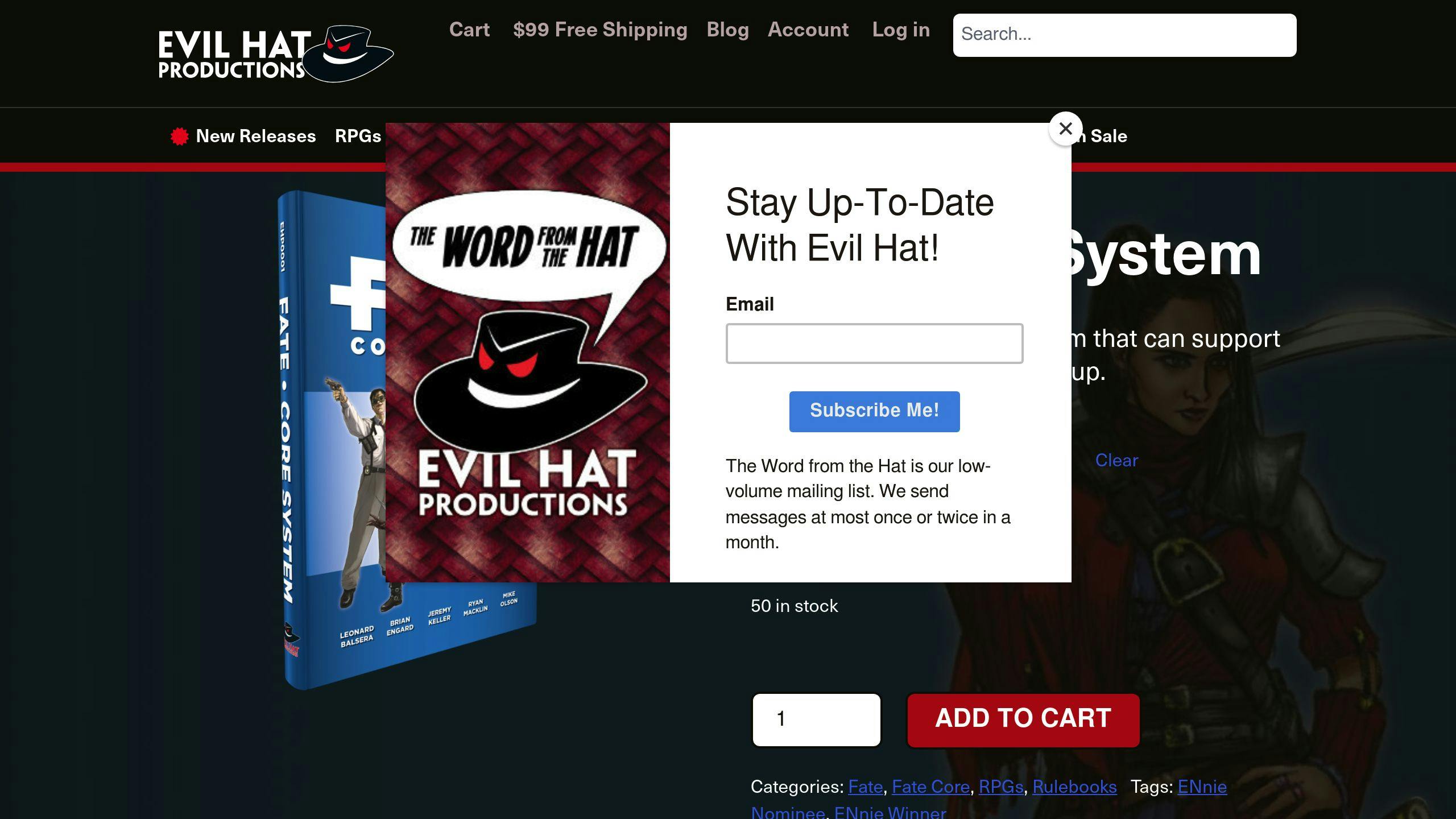
Game Mechanics
Fate Core stands out with its distinct dice system and emphasis on storytelling. The game uses Fate Dice (4dF), which have plus, minus, and blank sides, generating results between -4 and +4. This adds an element of unpredictability while keeping the mechanics simple.
| Game Element | Description |
|---|---|
| Fate Points | A resource players use to activate aspects for bonuses |
| Aspects | Traits that define characters and provide mechanical effects |
| Skills | Abilities rated on "the ladder" (ranging from +1 to +8) |
| Stress Tracks | Tracks used to manage physical and mental damage |
Ease of Character Creation
Creating characters in Fate Core is straightforward. Players focus on defining two main elements: a High Concept and a Trouble. For instance, a character might have "Hotshot Daredevil" as their High Concept and "Rash Arrogance" as their Trouble. These elements immediately highlight both strengths and flaws, giving depth to the character [3].
Storytelling Focus
Fate Core puts storytelling front and center with its Golden Rule: "Decide what you're trying to accomplish first, then consult the rules to help you do it." Characters are designed to be capable, take initiative, and live eventful lives [3].
"The moment you sit down to make the game and characters, you're playing Fate." - Fate Core System Author [2]
Beginner Accessibility
Though the core rulebook might seem detailed at first glance, Fate Core is welcoming to new players. It offers a 'pay what you want' pricing model, simplified Fate Accelerated rules for quicker play, and plenty of online resources [2]. The system encourages creativity and allows players to explore roleplaying without being bogged down by overly rigid mechanics.
Fate Core’s focus on storytelling and flexible mechanics makes it a great option for groups who want a customizable, narrative-driven RPG experience.
sbb-itb-b8b00a5
Dungeon World is what you WANT D&D to be
Advantages and Disadvantages
For newcomers, knowing the pros and cons of each tabletop system is crucial for finding the best match. Each system brings something different to the table, letting players choose based on what they value most.
| Game System | Advantages | Disadvantages |
|---|---|---|
| Pathfinder 2nd Edition | • Detailed rule system • Extensive character customization • Immersive world-building • Complex combat mechanics |
• Steep learning curve • Complicated character creation • Rules-heavy, which can overwhelm • Requires significant prep time |
| Dungeon World | • Focuses on storytelling • Quick to set up and start • Simple mechanics • Promotes group collaboration |
• Limited tactical depth • Looser structure may feel chaotic • Relies heavily on GM improvisation • Fewer pre-written adventures |
| Fate Core System | • Works across many genres • Flexible "pay what you want" pricing • Prioritizes character development • Strong narrative focus |
• Abstract mechanics may confuse beginners • Lacks a defined setting • Requires player creativity • Limited pre-made resources |
These differences make it easier for players to pick a system that aligns with their play style. For those who love tactical combat and intricate character builds, Pathfinder 2nd Edition is a strong choice, though its complexity might be daunting.
Dungeon World simplifies the experience, making it a great option for beginners. Its emphasis on storytelling and quick setup helps players dive into role-playing without being overwhelmed by rules.
Fate Core stands out for its adaptability, but its abstract mechanics might take time to master. Groups with a creative streak and a willingness to experiment will appreciate its focus on collaborative storytelling and character-driven play.
Trying out one-shot sessions can be a great way to explore these systems before committing to a full campaign. Each system brings something distinct, ensuring there's something for every type of player.
Conclusion
Choosing the best RPG alternative to D&D doesn't have to be complicated. Each game system brings something different to the table, catering to a variety of player preferences and playstyles.
Pathfinder 2nd Edition is a great pick for players who enjoy detailed tactics and character customization.
Dungeon World works well for groups that prioritize storytelling and want minimal prep time. Its simple mechanics let you dive straight into the adventure without wading through complex rules.
Fate Core System stands out for its genre-spanning approach. With its abstract mechanics and focus on character-driven stories, it's perfect for groups who love collaborative and imaginative storytelling.
When picking your next system, consider these factors:
- How much your group enjoys combat versus storytelling
- The time you can spend learning rules and preparing sessions
- The kind of narrative experience you want to build
- The resources and support materials available for the system
Still unsure? Check out the TTRPG Games Directory for detailed guides on these and other RPGs.
"All these games are fantastic doorways to enter the wider TTRPG world." - Alyshia
Whether you choose Pathfinder 2E, Dungeon World, or Fate Core, each system offers its own path to unforgettable adventures. Starter kits and online tools can make the transition even smoother.
FAQs
Is there a simpler version of Dungeons and Dragons?
Yes, there are easier options for those new to tabletop RPGs. While games like Pathfinder 2E, Dungeon World, and Fate Core are beginner-friendly, some systems go even lighter on rules and setup.
Fate Accelerated is a simplified version of Fate Core, known for its easy mechanics and quick character creation. For complete beginners, here are a couple of great choices:
| Game | Key Features | Ideal For |
|---|---|---|
| Everyone is John | Single character focus, uses only d6 dice | First-time players |
| Honey Heist | Light rules, fun and quirky premise | Short, casual sessions |
When picking a simpler alternative, focus on games with easy-to-grasp rules, straightforward character creation, and clear gameplay. Many of these also have strong community support to help you get started.
These games make it easy for newcomers to dive into tabletop roleplaying while still offering engaging and imaginative storytelling experiences. Whether you're looking for a quick laugh or a stepping stone into more complex systems, these options are a great place to start.
